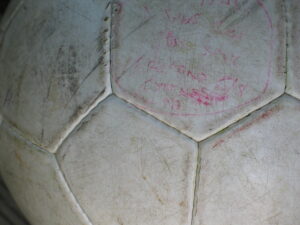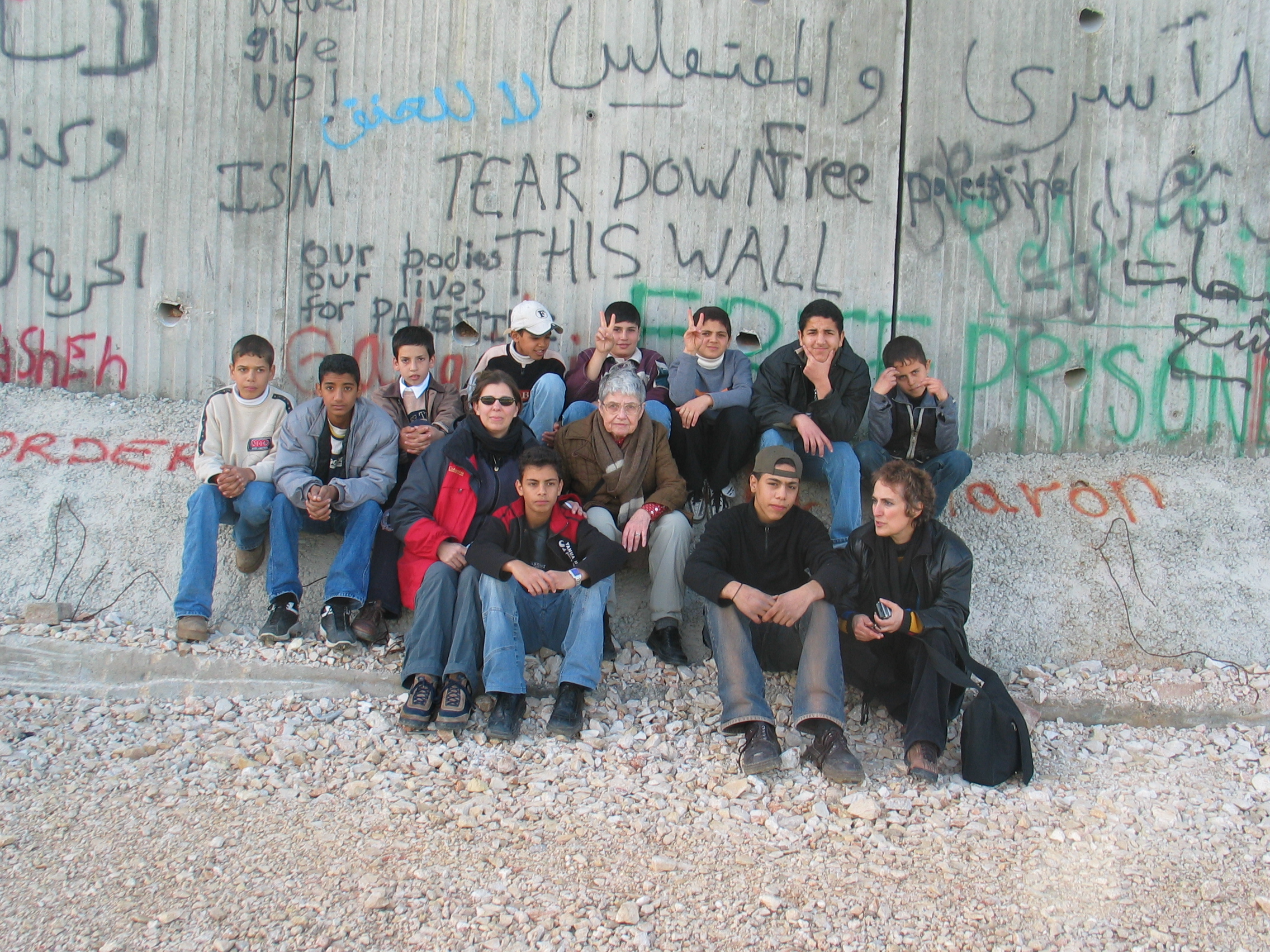by HEDY EPSTEIN
Sometime on an early December 2004 morning in Jerusalem my dear friend Dianne and I were preparing to go to Qualquilia with our friend Ed and a film crew he had organized. Our Palestinian friend Vivica offered her car.
The trunk of the car was opened so we could stow our backpacks in there. I saw a ball (I later learned it was a soccer ball) and asked if I could borrow it for the day and was given permission to do so.
Later that morning we came to one of Israel’s flying checkpoints. (A flying checkpoint is one when one or more soldiers decide to stop all traffic until they give the go-ahead.) We were stopped by an Israeli soldier, had to show our IDs and answer some questions. All of us Americans were given permission to proceed, except one, our sound man, a Palestinian. We presented reasons why we needed him, we were not planning a silent film, we begged, we pleaded, all to no avail. I had been standing there silently, hugging the ball, when I suddenly decided to toss the ball to the soldier. He tossed it back to me and so it continued for a little while, back & forth, when the soldier, pointing to our sound man, suddenly said: “he can go.”
No explanation why I wanted to take the ball. No explanation why the soldier changed his mind. Perhaps I had touched a still remaining human element in his young body and mind.
Reaching our destination in Qualquilia, near the menacing 25 foot high cement wall, erected by the Israelis, we encountered some young Palestinian boys. They saw the ball, gestured their desire to play with the ball, engaging us to join them. Though we had no common language, the magic ball was our interpreter.

Later that evening I returned the ball. On subsequent trips to Palestine, I always carried a little plastic ball with me.
